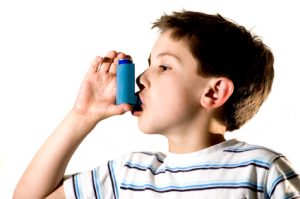 Asthma is a disease that 9% of U.S. children under 17 yrs old have. That adds up to about 6.7 million children in the U.S. and it accounts for 13 million missed school days, 200,000 hospitalizations, and 750,000 visits to emergency departments. Asthma has a track record of being misunderstood, misdiagnosed, and mismanaged by physicians. Some of the many questions about Asthma can be briefly answered in this post it’s ALWAYS best to talk to your pediatrician directly if your child has or you think they may have Asthma.
Asthma is a disease that 9% of U.S. children under 17 yrs old have. That adds up to about 6.7 million children in the U.S. and it accounts for 13 million missed school days, 200,000 hospitalizations, and 750,000 visits to emergency departments. Asthma has a track record of being misunderstood, misdiagnosed, and mismanaged by physicians. Some of the many questions about Asthma can be briefly answered in this post it’s ALWAYS best to talk to your pediatrician directly if your child has or you think they may have Asthma.
What is Asthma?
The lungs are a bit like an upside down tree with the windpipe, as the trunk, splitting into two as it directs air into both of your lungs. From there it branches into smaller and smaller airways where oxygen finally makes it’s way to your bloodstream. Over-reactivity in these small airways, causing them to contract, is what is known as the disease of Asthma. The walls to these airways become swollen and produce mucus which makes tiny airways even smaller. This make it hard to get the oxygen to the bloodstream and makes it harder to get the back out of the lungs. The result is coughing, wheezing, and fast or difficult breathing. People with asthma will experience chest tightness, shortness of breath, or a feeling of drowning.
Is It Really Asthma?
It can be a tough diagnosis because asthma can look like a bunch of other problems, especially in 1-2 year olds. Many illnesses can cause coughing, wheezing, and rapid or labored breath like pneumonia. Kids can also get things stuck in their airways. Some asthma is diagnosed mistakenly when it’s really anaphylaxis, heart failure or cystic fibrosis. The cause of the asthma symptoms could also just be allergies, a vocal cord dysfunction, or a child who doesn’t get enough exercise.
Is Asthma Inherited?
Yes, children with one to two parents who have asthma, allergies or some other condition are more likely to develop that same conditions. Even though a child may be genetically susceptible to asthma, it usually takes a certain trigger to bring on asthma.
What Else is Associated With Asthma?
Allergic rhinitis (allergies) and eczema are usually associated with a child who has asthma because the problems are interrelated. Some other problems that are sometimes related to having asthma are having gastroesophageal reflux, sleep apnea, or a vitamin D deficiency. Obesity is another related problem. So are food allergies. Addressing these related problems can help alleviate the severity of a child’s asthma condition. Infants who get an RSV infection can also develop asthma over a period of time.
When Should I Get My Child Evaluated for Asthma?
If your child’s breathing is too fast or labored then he/she need urgent medical attention. For less urgent symptoms, make an appointment with your pediatrician to be evaluated for Asthma,
Bottom line: The good news about Asthma is that it can be controlled and allow those with it to live pretty normal lives.
Contact Us (859-525-8181) if you have any questions!
—
 About Pediatrics of Florence
About Pediatrics of Florence
We believe that children are more than just “little adults.” They have unique personalities, challenges, and life circumstances and we have made every effort to make our offices and care as “kid friendly” as possible. We have an aquatic theme in the waiting rooms (separated for sick and well children) as well as themed examination rooms. All of our physicians are Board Certified Pediatricians and members of the American Academy of Pediatrics and our nurse practitioners are all licensed Pediatric Nurse Practitioners and are available to see both well and sick children.
>> More About Pediatrics of Florence
